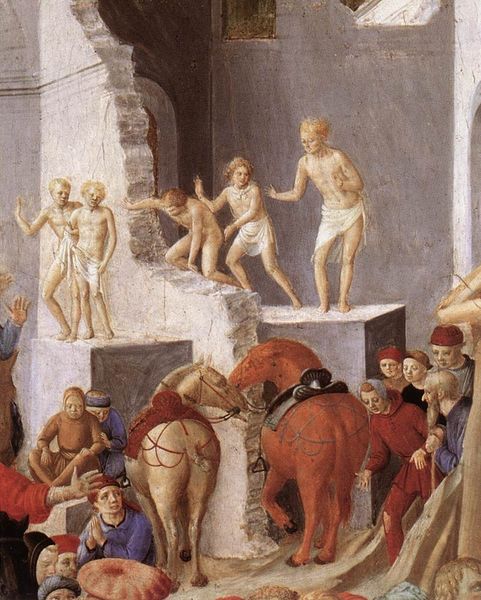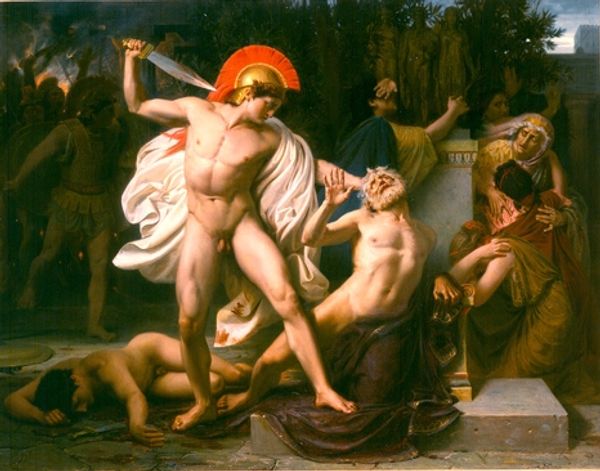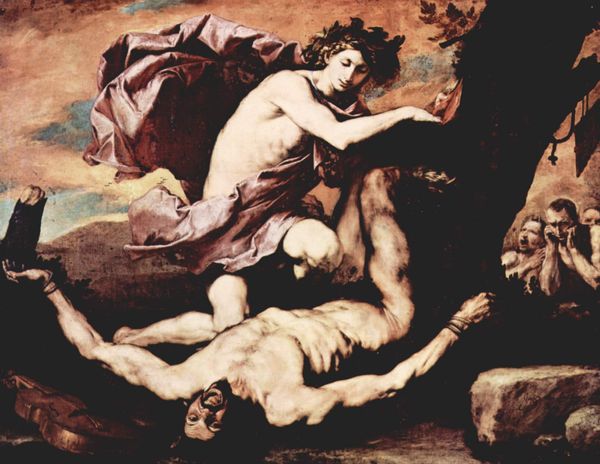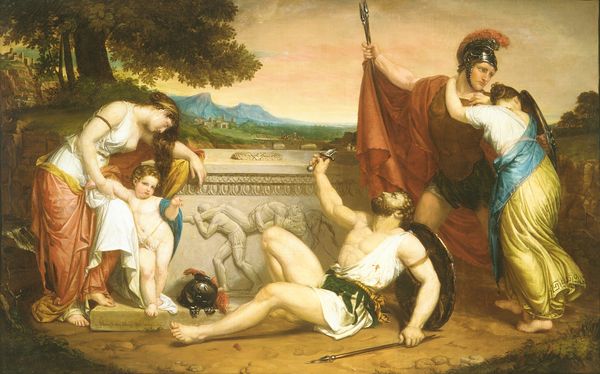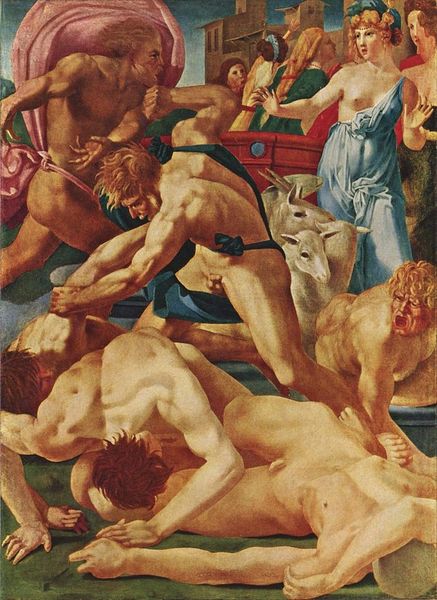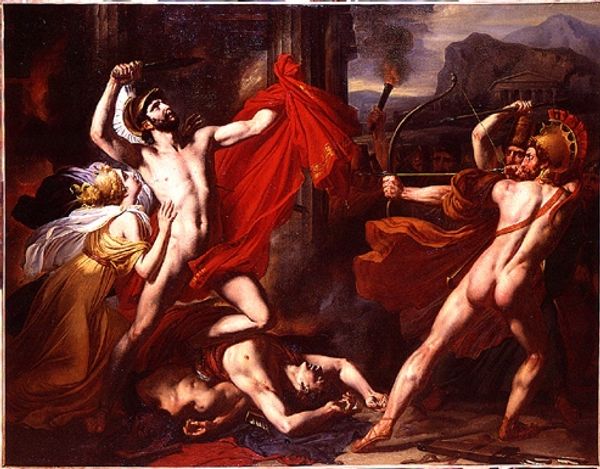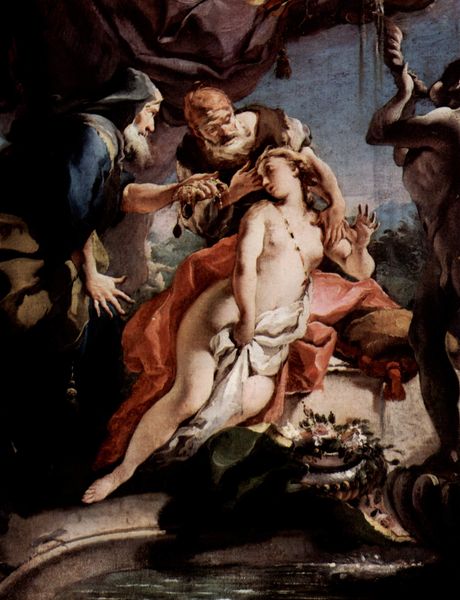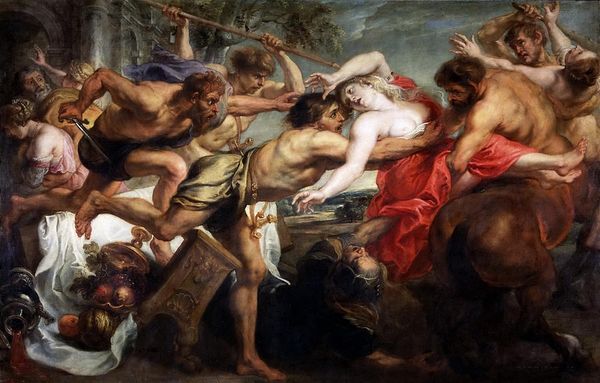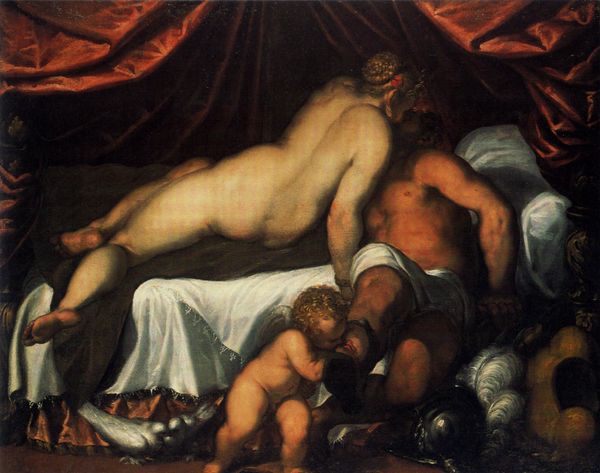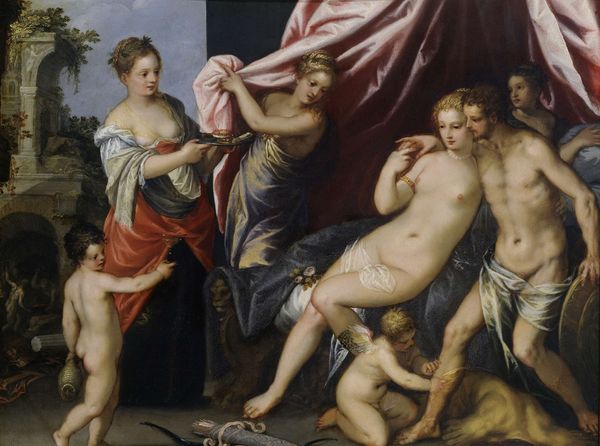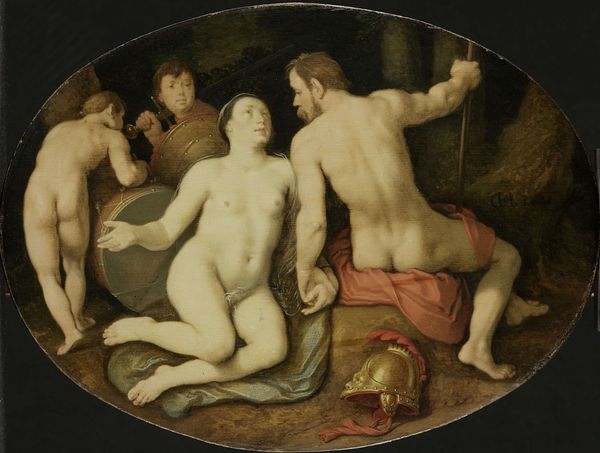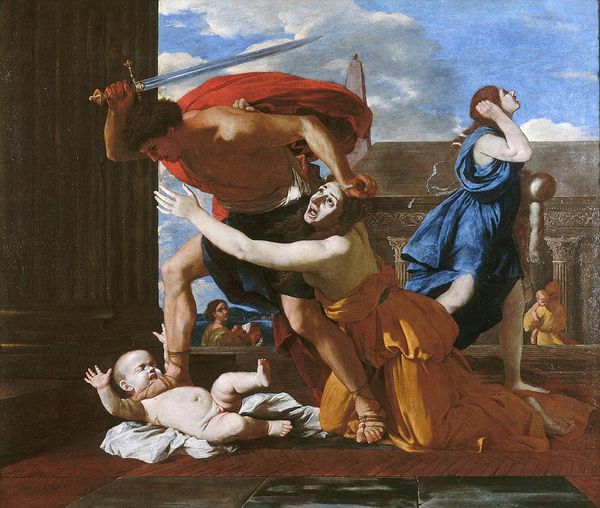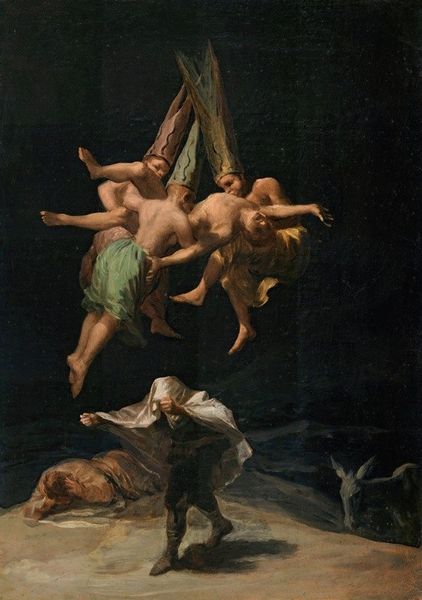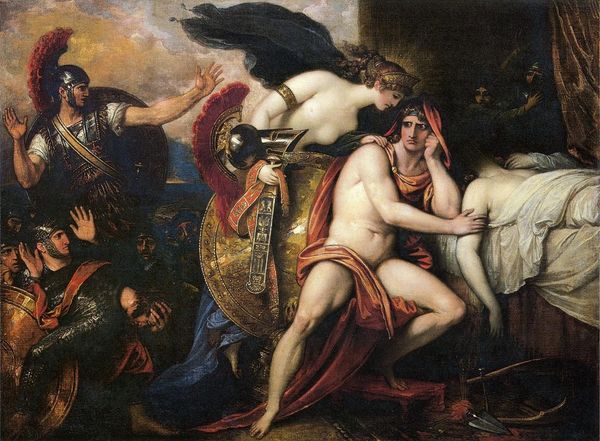
#
neoclacissism
#
narrative-art
#
sculpture
#
figuration
#
form
#
oil painting
#
line
#
history-painting
#
academic-art
Copyright: Public domain
Vincenzo Camuccini painted "The Death of Priam" to depict a scene from Virgil's Aeneid. The painting employs the visual vocabulary of neoclassicism. Its figures are idealized, its setting is sparse, and its theme is drawn from classical literature. Camuccini was at the center of a new Roman art world, where artists looked to the art of antiquity and high Renaissance for inspiration. The Academy of Saint Luke, where Camuccini later became director, advocated for a rational style and the imitation of classical models, and held considerable sway over artistic production and taste. Note the theatrical gestures of the figures, and the implied moral lesson in the image of the powerful Achilles slaying the aged Priam. To fully understand a painting like this, we need to look at the institutions that shaped its creation, and the social and cultural values that it embodies. Examining the writings of theorists and critics helps us understand how this painting might have been received in its time.
Comments
No comments
Be the first to comment and join the conversation on the ultimate creative platform.
